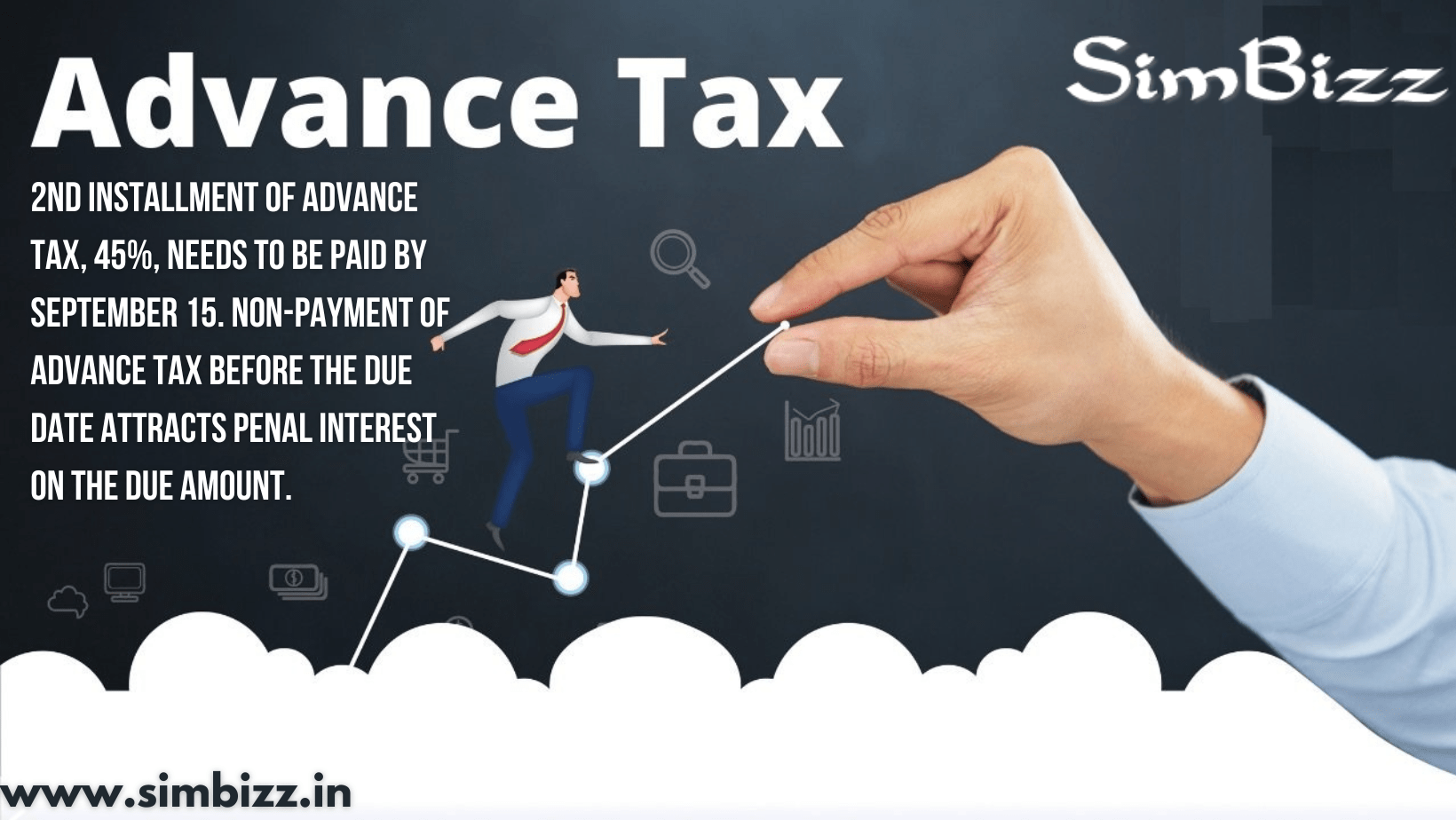f the Income Tax Liability of any taxpayer is more than Rs. 10,000 in a financial year, then he is liable to pay such tax in installments during the year itself rather than paying this tax at the end of the year. This tax which is payable during the year is called “Advance Tax” or “pay as you earn tax” as the tax is liable to be paid at the time the income is earned i.e. during the year itself rather than paying this tax at the end of the year.
Advance Tax receipts help the Govt. to receive a constant flow of tax receipts throughout the year so that the Govt can incur its expenses timely rather than receiving all tax payments at the end of the year. Advance Tax is liable to be paid by all assesses like Salaried, Self Employed, Businessman etc. before the filing of Income Tax Return. An Income Tax Return cannot be filed till the income tax is fully paid.
For Individuals with Salary as the sole source of income, Advance Tax would be taken care of by the TDS deducted by the employer at the time of payment of salaries as reflected in Form 16 and thus there would hardly be any Advance Tax payable. Senior Citizens not having any Business Income are also exempted from the payment of Advance Tax
What are the benefit of Advance Tax?
It reduces the burden of tax payment. It helps in mitigating stress that a taxpayer may undergo while making tax payment at the end of fiscal year. It saves people from failing to make their tax payments. It helps in raising government funds as the government receives interest on the tax collected.
Due Dates of Advance Tax (section 211)
| Due date of installment in the relevant previous year | Other than 44AD or 44 ADA | Eligible assesse carrying on eligible business under section 44 AD or 44 ADA |
| On or before June 15 | 15% of such advance tax | |
| On or before September 15 | 45% of such advance tax payable | |
| On or before December 15 | 75% of such advance tax payable | |
| On or before March 15 | 100% of advance tax payable | 100% of advance tax payable |
No Advance Tax
Ans. A resident senior citizen(i.e., an individual of the age of 60 years or above during the financial year) not having any income from business or profession is not liable to pay advance tax.
Taxpayer who opted for presumptive taxation scheme of section 44AD or section 44ADA is liable to pay 100% of advance tax by 15th March.
Keynotes to Remember
- Any amount paid under section 211 on or before 31st March of the previous year, shall be treated as advance tax paid during the financial year.
- Provisions of advance tax is not applicable in the following cases:- Where an assesse is a senior citizen and does not have any income chargeable under the head “Profits and gains of business or profession”. In other words, senior citizen not having business income is not liable to pay advance tax.
- Every income including capital gain, winning from lotteries, etc. is subject to advance tax. However, it is not possible to estimate capital gain or casual gain, therefore, where the assesse has paid the whole of the amount of tax payable in respect of such income:
- As part of the remaining installments of advance tax which were due; or
- Where no installments were due, by March 15 of the fi nancial year immediately preceding the assessment year, Then it is deemed that all the provisions are complied.
- If the last day for payment of any installment of advance tax is a day on which the receiving bank is closed the assesse can make the payment on the next working day. In such case, the mandatory interest leviable under section 234B and 234C would not be charged (Circular no. 676 dt. 14.1.1994)
- While calculating advance tax, net agricultural income shall also be taken into consideration for computing tax liability
- The advance on certain income can be paid after its occurrence as it cannot be estimated:
- Long term capital gain
- Casual Income
- Dividend Income chargeable under section 115BBDA.


